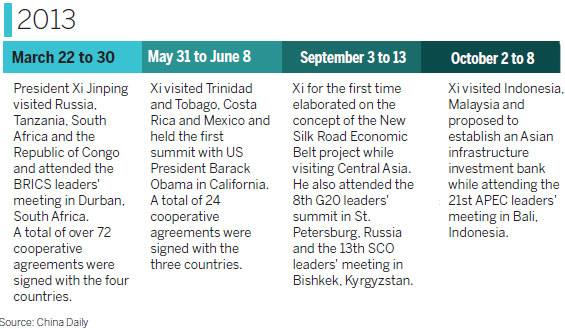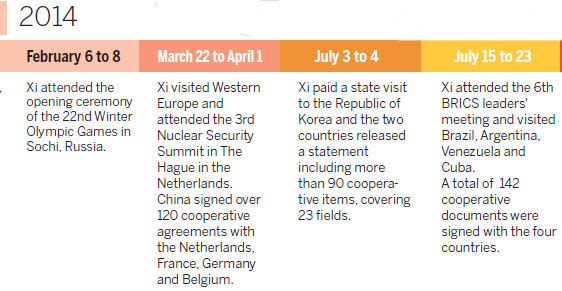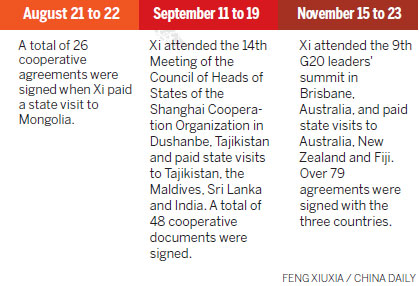 |
 |
 |
China's ambitious plans, involving a large number of countries, aroused concern that its bounding economic growth will bring about a more assertive, muscular diplomatic and military approach.
Robert Zoellick, former US deputy secretary of state, said if China is not able to articulate its plans for a future international order, people will be concerned, "not necessarily because China has bad intentions, but there will be uncertainties".
Analysts said China, whose development has greatly benefited from the current global order, did not aim to abandon or topple the order. Instead, it has done a lot in recent years to get more involved in the global game by better adapting to rules, such as those governing free trade, and offering ideas to improve today's framework.
November saw a number of breakthroughs, including China reaching long-awaited free trade agreements with South Korea and Australia.
In what Xi called a "historic step" that month, APEC members agreed to build a trade liberalization framework called the Free Trade Area of the Asia-Pacific that is being pushed by Beijing.
According to estimates from the Peterson Institute of International Economics cited by The Wall Street Journal, the framework would represent a "win-win" for the US and China as it could help both gain billions of dollars in exports.
Pang Zhongying, a professor of international relations at Renmin University of China, said China's proposals at this year's APEC and G20 meetings threw much needed support at the world's sluggish economy and current economic framework.
At November's G20 summit in Australia, Xi said China would subscribe to special IMF data standards and start to release figures about its strategic oil reserves in a more comprehensive manner.
China is not a member of the International Energy Agency or the Organization for Economic Cooperation and Development, and it is not obliged to publish its oil reserves, which would help to stabilize international crude prices.
Kerry Brown, professor of Chinese politics at the University of Sydney, said Xi does not want "challenges from the world" to distract China from internal changes such as transforming the economy toward more stable and sustainable growth, according to Agence France-Presse.
